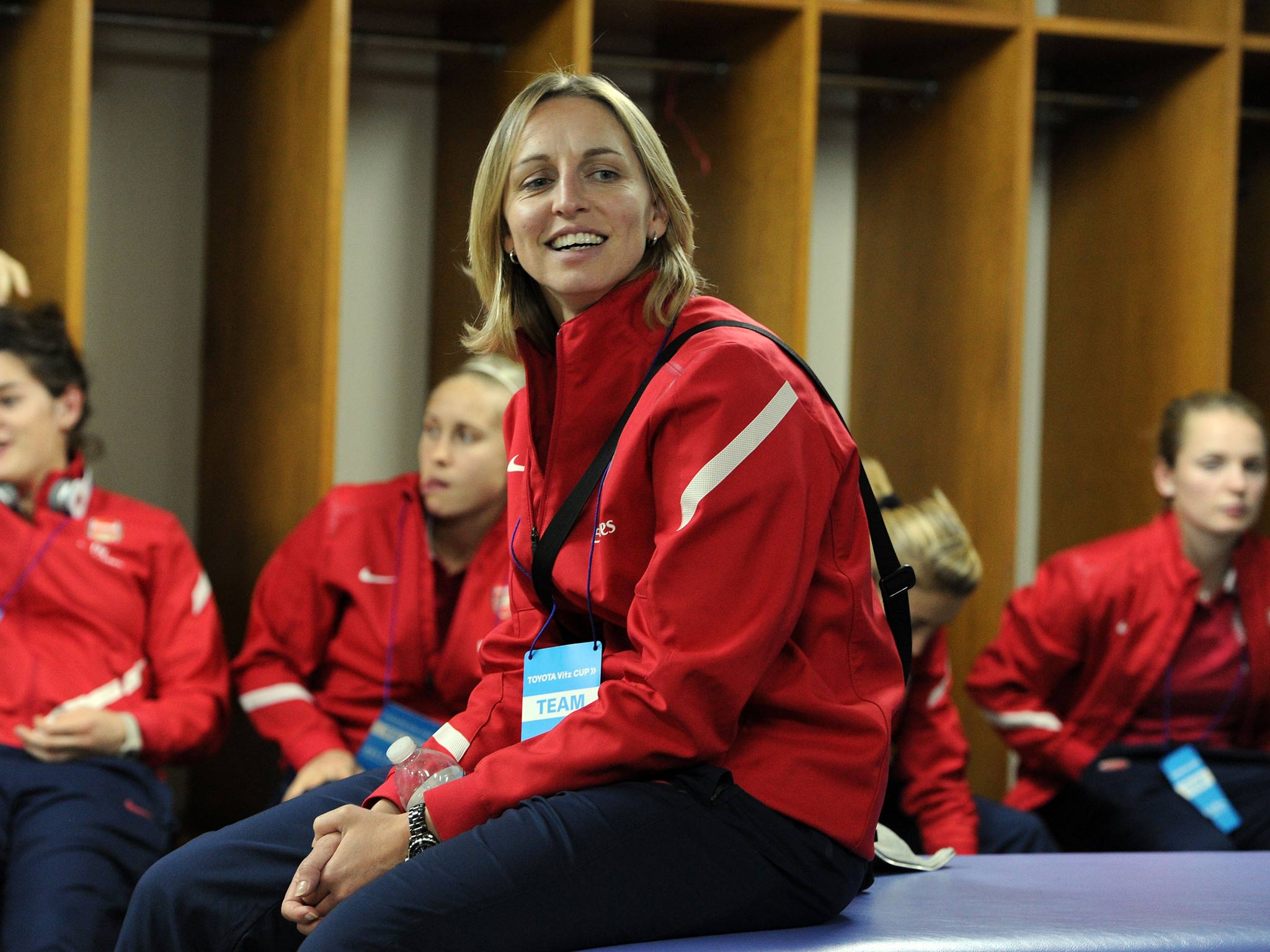Faye White hopes European success can be pounced upon for the good of women's football
Arsenal Ladies have dominated British representation in Europe

Your support helps us to tell the story
From reproductive rights to climate change to Big Tech, The Independent is on the ground when the story is developing. Whether it's investigating the financials of Elon Musk's pro-Trump PAC or producing our latest documentary, 'The A Word', which shines a light on the American women fighting for reproductive rights, we know how important it is to parse out the facts from the messaging.
At such a critical moment in US history, we need reporters on the ground. Your donation allows us to keep sending journalists to speak to both sides of the story.
The Independent is trusted by Americans across the entire political spectrum. And unlike many other quality news outlets, we choose not to lock Americans out of our reporting and analysis with paywalls. We believe quality journalism should be available to everyone, paid for by those who can afford it.
Your support makes all the difference.Just as the men’s competition rarely sees an absence of British clubs in the quarter-finals of the Champions League, the women’s version has a similar record, if just for one team.
Arsenal Ladies have dominated British representation in Europe since the competition’s inception in 2002 as the UEFA Women’s Cup.
And defender Faye White, who has captained the side through unrivalled success, is one of the most recognisable faces in the women’s game. At 35, she is preparing her side for another quarter-final appearance against Italians ASD Torres, with today’s first leg at Meadow Park, the home of Boreham Wood FC.
Since winning the competition in 2007, where they beat Swedish side Umea 1-0 over two legs, the women’s game in this country should have progressed into a more marketable force. Momentum has forced little, and White agrees.
“We have shown on the pitch that we are getting there, but there is still work in terms of the media and public perceptions.
“Due to the lack of media coverage at the time the overall game did miss out as the wider public didn’t know about it.”
Arsenal, as ever, are the last British team remaining in the tournament. They have also dominated the domestic game, winning both editions of the women’s Super League since it began in 2011, as well as 12 Premier League titles beforehand.
But European success is highest on the agenda for White, with more than just glory on the pitch at stake.
“The Champions League is the highest level,” she said. “It’s a great opportunity, and is getting so much stronger. Because the strength of clubs around Europe is getting better and stronger, this year looks more exciting. A victory would help to continue to grow the positive perceptions of the game.”
Arsenal arrived in the last eight after a 6-4 aggregate victory over German giants FFC Turbine Potsdam, whose average attendance in this season’s competition touches 3,000. But these positives give rise to more questions.
Arsenal’s average attendance is just under 800, with the popularity of the game in the likes of Germany and Sweden towering over England. Despite matching their rivals on the pitch, there is no contest between English sides and other countries off it.
Unsurprisingly, this stems from the number of people playing the game. At the time of Arsenal’s European success in 2007 there were 130,000 registered female players in England, compared to nearly a million in Germany. There were similar figures in Sweden to that of England, but bearing in mind the population is over five times less, the gap is immense. Last year’s final at Munich’s Olympiastadion attracted a staggering 50,000 spectators.
“The Germans are so good at club and international level, as are the Scandinavians,” said White. “It’s a very different perception, well covered, well supported by federation and by the public. It just seems to be football, not women’s and men’s.
“Clubs like Lyon and Potsdam have had a lot of success due to the increased funding in their teams and their leagues,” White added.
“This is mainly due to the increased amount of support and funding which we are still trying to get the through commercial partnerships and media coverage.”
However, White does believe the game is currently going in the right direction. This month saw the BBC announce online highlights of the Super League, which kicks off on Saturday, while the FA Cup and this summer’s European Championships will have more in-depth coverage and previews. BBC presenter Clare Balding put the attraction to women’s football bluntly, recently telling the Guardian: “Players aren't abusive to referees, they don't spit, swear or dive and there is no racist abuse.”
But with the men’s European game creating such anticipation and talking points, increased coverage of the women’s Champions League is surely what the game needs for that extra injection of interest. Nevertheless, with this year’s final at Stamford Bridge, the current home of the European champions, to follow Arsenal’s progress in the competition would be a to support the women’s game in Britain.
“Success does open more doors as it helps change companies and people’s perceptions to get involved and provide more funding,” added White. “We have shown that with the quality of the game and great role models available the sport can be marketed to develop these relationships and therefore get more funding.”
The UEFA Women’s Champions League Final takes place at Stamford Bridge on Thursday 23 May. Tickets priced from £5 are available to purchase now from www.chelseafc.com/uefawomensfinal
Join our commenting forum
Join thought-provoking conversations, follow other Independent readers and see their replies
Comments